IMER Abroad: PROVIR Seminar – Precarious migrants and access to welfare: Between policy, law and practice
This workshop will discuss the legal and experienced dilemmas found in the encounter between migrants living in a legally precarious situation and the welfare state in which they reside. Participants will present ongoing empirically based research on migrants’ access to welfare in policy, law and practice in various European countries. They will also discuss the particular position of youth and children in vulnerable situations. The program is available here.
COMMUNICATING MIGRATION SEMINARS: ESPEN HELGESEN – “Your dad is looking for you” – Children’s perspectives on state intervention in immigrant families in Norway
Several recent international news stories have described state-initiated forced separation of children and parents in Norway, illustrating how local decisions in the Child Welfare Service can have widespread ramifications outside the families involved. In this paper I draw on ethnographic fieldwork among immigrant families in Kristiansand, Norway, to show how a group of children responded when one of their friends suddenly disappeared. The secrecy surrounding the inner workings of the Child Welfare Service led the children to frame the incident as a “kidnapping”, and several children expressed fear that they, too, would be separated from their families. Frustrated with the lack of an explanation of what had happened to their friend, the children turned to online worlds, where they could express their fears and concerns by sharing artwork with friends outside the adult gaze.
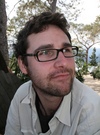 Espen Helgesen is a PhD candidate at the Department of Social Anthropology, University of Bergen, currently finishing his thesis on technology-mediated sociality and self-formation among children of immigrants in Norway.
Espen Helgesen is a PhD candidate at the Department of Social Anthropology, University of Bergen, currently finishing his thesis on technology-mediated sociality and self-formation among children of immigrants in Norway.
Communicating Migration Seminar Series IMER Bergen spring and autumn 2014
The IMER seminar series for 2014 will cover how migration and ethnic relations are communicated in every-day encounters, in mass and social media, in politics and in teaching at the universities. Has the way people talk about migration and migrants in different social contexts changed over time, and in which ways has it changed? How does migration theory and research fit in with other topics and theories in the social sciences, and how do results from migration research inform public debate and policy development? Communicating migration will be discussed from various angles in our seminar series on international migration and ethnic relations during spring and autumn 2014. We welcome papers that touch upon this broad theme from different angles. Historical analyses of change over time in regard to politics and public debate, research foci and disciplinary concerns are specifically welcomed. The seminar series will end with a two-day conference in October/November 2014.
BSRS 2014 Governance to meet Global Development Challenges
Welcome to BSRS2014!
The theme for BSRS2014 is Governance to meet Global Development Challenges. The event will take place from June 23rd to July 4th 2014 at the University of Bergen. Please find information about the courses, application form and other activities at the menu to your right side.
One of the courses is and IMER/SKOK PhD course.
Read more at:
http://www.uib.no/rs/bsrs/programme/bsrs-2014-governance-to-meet-global-development-challenges
IMER Seminar:
Elaine Chase and Jenny Allsopp: The ‘tactics’ of time and status: Young people subject to immigration control making the transition to ‘adulthood’ in the UK
Young people who arrive in the UK from outside Europe without a parent or legal guardian are institutionally categorised according to a range of possible legal statuses and usually afforded time-limited Leave to Remain in the UK. These categorisations are associated with specific welfare entitlements which tend to diminish over time and become particularly uncertain as young people transition into ‘adulthood’. Situated within a broader research programme examining the link between migration, ‘wellbeing’ and ‘futures’, this paper examines the multiple transitions imposed on young people subject to immigration control as they approach the age of 18 and beyond, (from child to ‘adult’, from being accorded a temporary residence permit to more permanent leave to remain or from legality to ‘illegality’) and the implications for their access to various dimensions of welfare provision. The paper shows how different components of the ‘state’ have time limitations at their disposal to control access to welfare and state support according to chronological age. From young people’s perspectives, such ‘tactics’ fundamentally control their trajectories and future prospects unless they can formulate strategies of their own to counter such tactics.
Read more about Elaine Chase here
Read more about Jenny Allsopp here
Plural policing and the safety–security nexus in urban governance
Based on a study of policy frames in urban politics in Sweden, Malmö in particular, this article discusses the safety–security nexus in urban governance. It argues that perceived safety figures as an index of order and integration, and security becomes part and parcel of an expanded cohesion agenda which chain-links criminal justice, immigration control and civic integration. The expanded cohesion agenda in urban governance involves plural urban policing enabled by partnership agreements between the police and local authorities. The article demonstrates how force-based, pre-emptive crime-fighting is intertwined with preventative empowerment programmes; the ‘will to power’ is embedded in ‘the will to empower’. The preferred solution to social problems is extended force-based policing in combination with more police involvement in ‘social’ governance. It is argued that the expanded social cohesion agenda works to ‘criminalize’ specific subpopulations by replacing ‘social’ welfare politics with crime prevention programmes. Under an expanded cohesion agenda, crime prevention has less to do with preventing people from violating the law and more to do with securing the social order. Moreover, it is argued that security politics relates to a broader urban politics aimed at nurturing prosperous diversity considered to benefit the city as a whole, at the cost of problematic difference. In conclusion the article argues that urban security politics lends itself to old welfare state structures, even as responsibility for social crime prevention is devolved ‘downwards’ and distributed across and array of agencies. The social democratic legacy – the revised welfare state – seems to offer favorable conditions for plural policing of minority groups in the city.
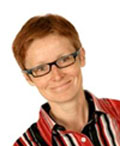 Randi Gressgård is professor at the Centre for Women’s and Gender Research (SKOK), and affiliated with the research unit International Migration and Ethnic Relations (IMER), University of Bergen. Her research interests include migration & minority studies, gender & sexuality studies and urban studies. Among her recent publications are Multicultural Dialogue: Dilemmas, Paradoxes, Conflicts (New York and Oxford: Berghahn Books, 2010/2012) and ‘The power of (re)attachment in urban strategy: Interrogating the framing of social sustainability in Malmö’ (Environment and Planning A 2014, vol. 46).
Randi Gressgård is professor at the Centre for Women’s and Gender Research (SKOK), and affiliated with the research unit International Migration and Ethnic Relations (IMER), University of Bergen. Her research interests include migration & minority studies, gender & sexuality studies and urban studies. Among her recent publications are Multicultural Dialogue: Dilemmas, Paradoxes, Conflicts (New York and Oxford: Berghahn Books, 2010/2012) and ‘The power of (re)attachment in urban strategy: Interrogating the framing of social sustainability in Malmö’ (Environment and Planning A 2014, vol. 46).
IMER Lunch: Astrid Ouahyb Sundsbø – Social mixing policies: What You Want and What You Get
In the public debate and contemporary social policies in Norway as well as in other countries, concentrations of “immigrants” in certain areas of a city are considered to be unfortunate and something which needs to be fought against (see i.e. Gakkestad 2003; Akerhaug 2012). It is anticipated that spatial concentrations of “immigrants” enforces the social isolation of “immigrants” and triggers criminal activities, among other aspects. This becomes very obvious when a “high percentage of immigrants” in an area serves as basis for referring to that area as a “ghetto” or “insecure” (see i.e. Sæter 2005; Vassenden: 2007; cf. Akerhaug 2012).
In this lunch seminar, the idea of social mixing, which is not just common in the general public debate but also a manifested major urban policy and planning goal (Sæter & Ruud 2005; Huse, Sæter & Aniksdal 2010; cf. Musterd 2005) will be discussed. By using some illustrations both from the academic debate as well as own empirical work, it is shown that it is necessary to be critical about this concept.
It is referred to literature arguing that there is a lack of empirical evidence showing that the residential segregation of “immigrants” has any effect at all, for instance on “integration” and crime (for instance Musterd 2005; Galster 2007; Lees 2008). Furthermore, it is discussed that the imagination of social mixing as an ideal way to tackle the “multicultural challenge” might be founded on a highly problematic understanding of “immigrants“ and their norms and values as inherently “bad” (cf. Eriksen 1996: 51). This is shown by drawing on statements from interviews with members from the majority population residing in Oslo.
Astrid Ouahyb Sundsbø
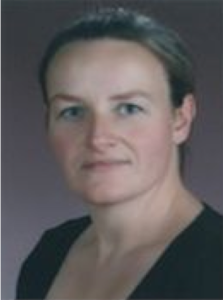 Astrid Ouahyb Sundsbø (PhD) is a postdoctoral research fellow at the Georg-Simmel Center for Metropolitan Studies in Berlin. She holds a doctoral degree in sociology from the Humboldt-University of Berlin (2012). From 2012-2014 she worked as a postdoctoral researcher at the Center for a Sustainable University at the University of Hamburg. Her main fields of research compromise: Social inequality, residential segregation in cities, migration and interethnic relations. Her most recent publication is Grenzziehungen in der Stadt. Ethnische Kategorien und die Wahrnehmung und Bewertung von Wohnorten (Springer VS, 2014) where it is discussed whether ethnic boundary making on the side of the majority population could be a possible explanation for the residential concentration of immigrants in Berlin and Oslo.
Astrid Ouahyb Sundsbø (PhD) is a postdoctoral research fellow at the Georg-Simmel Center for Metropolitan Studies in Berlin. She holds a doctoral degree in sociology from the Humboldt-University of Berlin (2012). From 2012-2014 she worked as a postdoctoral researcher at the Center for a Sustainable University at the University of Hamburg. Her main fields of research compromise: Social inequality, residential segregation in cities, migration and interethnic relations. Her most recent publication is Grenzziehungen in der Stadt. Ethnische Kategorien und die Wahrnehmung und Bewertung von Wohnorten (Springer VS, 2014) where it is discussed whether ethnic boundary making on the side of the majority population could be a possible explanation for the residential concentration of immigrants in Berlin and Oslo.
Lisa Kings: Contesting urban management regimes: The rise of urban justice movements in Sweden
Addressing segregation, racism and welfare transformation, a new form of grassroots mobilization among young adults is emerging in the peripheries of Swedish cities. The common denominator is that they define themselves as urban justice movements– with place as the social ground for mobilization. Witha Gramscian perspective, the article analysis the rise of urban justice movements in relation to contemporary urban policies in Sweden. We argue that Swedish urban policies during the last 20 years have created a hegemonic urban management regime underpinned by area based programs with a focus on network steering and new forms of partnership between civil society and public institutions. The emergence of urban justice movements is here understood in relation to firsthand negative experience of– and later active revulsion from– having participated in activities and issues related to the urban management regime. These experiences and the later proclaimed autonomy of the movements have been a key condition for the beginning of a broader struggle that merges local rootedness with wider structural-institutional conditionality. (co-authored by Aleksandra Ålund (Linköping University) and Nazem Tahvilzadeh (KTH Royal Institute of Technology).
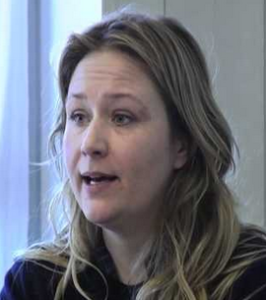 LISA KINGS holds a PhD in Sociology at Søderthorn University College. Her researh interests are urban theory, social movements, inequality and everyday life. (lisa.kings@sh.se)
LISA KINGS holds a PhD in Sociology at Søderthorn University College. Her researh interests are urban theory, social movements, inequality and everyday life. (lisa.kings@sh.se)
Vanja Lozic: Problematizing parents, governing troubled youth
The paperfocuses on current debate on troubled youth, living in socio-economically deprived suburbs in Sweden, and particularly discourses on problems of alienation, crime, arson and anti-social behaviour among youth. In the paper, interviews with the representatives of different organisations involved in managing the youth problem are analysed. One recurring theme in the interviews is problem discourses representing the parent as a problem. Departing from Foucault´s understanding of governmentality and the formation of subjectivity, we analyse the construction of problems, problematization, and conceivable solutions, as depicted by the interviewees. The problematizations recurring in the interviews are the deficiency of urban space, dysfunctional family relations and parents as being passive and culturally different. On the basis of such problematizations the interviewees propose solutions in various ways fostering the parents to become responsible and active subjects, who have internalised current norms and values. Other central solutions emerging in the interviews are the development of various forms of communicative skills as well as a range of pre-emptive measures targeting the parents. An important conclusion in the paper is that this way of developing possible solutions to the problems of suburban youth tends to focus on the transformation of individual parents, while structural dimensions get out of focus. What appears is a desire to foster parents and thus to produce a certain kind of subject, namely an active, responsible and cooperative individual, involved in the local community. (The paper is co-authored with Magnus Dahlstedt.)
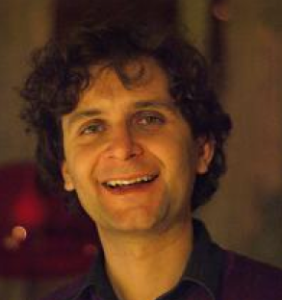 Vanja Lozic holds a PhD in history and issenior lecturer in Science of Education at Kristianstad University, Sweden. His research deals with issues in education from the perspectives of ethnicity, multiculturalism, gender, disability, youth cultures and work integrated learning. At present, he is participating in a research project “Cooperation, education and inclusion in multi-ethnic urban settings”, which concerns the connections between institutional restructuring, youth resistance and strategies for social inclusion. The aim is to investigate the measures for social inclusion within schools, local institutions and civil society actors in socioeconomically deprived areas of large cities in Sweden
Vanja Lozic holds a PhD in history and issenior lecturer in Science of Education at Kristianstad University, Sweden. His research deals with issues in education from the perspectives of ethnicity, multiculturalism, gender, disability, youth cultures and work integrated learning. At present, he is participating in a research project “Cooperation, education and inclusion in multi-ethnic urban settings”, which concerns the connections between institutional restructuring, youth resistance and strategies for social inclusion. The aim is to investigate the measures for social inclusion within schools, local institutions and civil society actors in socioeconomically deprived areas of large cities in Sweden
Active citizenship in culturally and religiously diverse societies.
In debates on citizenship in Europe, the need for active participation among citizens is increasingly stressed. But do normative ideas of what active citizenship is, reflect people’s lived experiences in present-day Europe? While the low electoral participation of young people is often highlighted as an indication of reduced civic participation, various studies show increased social media use leads to increased political and social debates and mobilization. And while politicians often lament the lack of civil-political engagement among immigrants particularly, many new citizens volunteer, work as activists, take up political causes, or set up associations in both their countries of residence and origin. In Europe’s culturally and religiously diverse societies, citizens have different frameworks for how they act and interact with their close and distant surroundings. The ACT project studies this diversified citizen participation through empirical data collection on (local, national and transnational) active citizenship in neighbourhoods in Oslo and Copenhagen.
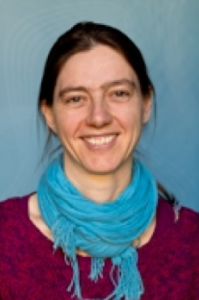 Cindy Horst is Research Director and Research Professor in Migration and Refugee Studies at the Peace Research Institute Oslo (PRIO). Her current research interests include: mobility in conflict; diaspora; humanitarianism; refugee protection; (transnational) civic engagement; and theorizing on social transformation.
Cindy Horst is Research Director and Research Professor in Migration and Refugee Studies at the Peace Research Institute Oslo (PRIO). Her current research interests include: mobility in conflict; diaspora; humanitarianism; refugee protection; (transnational) civic engagement; and theorizing on social transformation.
Redigert av Christine Jacobsen, Synnøve Bendixsen, Karl Harald Søvig
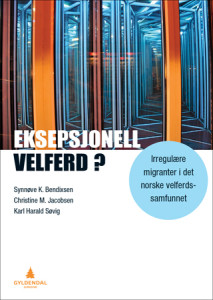 Irregulære immigranter har på noen områder full tilgang til velferdsytelser, men på mange områder er tilgangen svært begrenset enten i form av rettsregler eller andre barrierer. Denne antologien undersøker forholdet mellom rettslig rammeverk, institusjonell praksis og hvordan irregulære migranter selv erfarer sin situasjon.
Irregulære immigranter har på noen områder full tilgang til velferdsytelser, men på mange områder er tilgangen svært begrenset enten i form av rettsregler eller andre barrierer. Denne antologien undersøker forholdet mellom rettslig rammeverk, institusjonell praksis og hvordan irregulære migranter selv erfarer sin situasjon. Med en unik kombinasjon av juridisk og antropologisk blikk, går boken regelverket nærmere i sømmene, drøfter gatebyråkraters utfordringer og hverdagslivet til irregulære migranter og deres barn.
Hvilke regelverk får konsekvenser for irregulære migranters levevilkår? Hvordan blir dette regelverket forstått og etterfulgt av gatebyråkrater? Og hvordan blir hverdagslivet til irregulære migranter og deres barn påvirket av regelverket og dets fortolkning?
Denne boken er aktuell for velferdsprofesjoner som møter irregulære migranter som en del av sin yrkesutøvelse. Både leger, sykepleiere, helsesekretærer, lærere, helsesøstre, skolerådgivere, sosialarbeidere, sosionomer og barnevernspedagoger vil ha god nytte av Eksepsjonell velferd? Irregulære migranter i det norske velferdssamfunnet. Boken retter seg også mot frivillige organisasjoner som jobber med ulike aspekter ved migranters situasjon i Norge og andre som er engasjert i temaet.
The Play of Colors: Staging Multiculturalism in Norway
Fargespill (lit. “play of colors”) is a series of musical performances in Norway that have been staged from 2004 to the present. Each performance consists of a sequence of musical and dance numbers performed by children from different minority and immigrant groups, many of whom came to Norway as refugees, together with white Norwegian children. The songs and choreographies represent the home countries of the children who perform, and have included for example music and dance from Somalia, Myanmar (Burma), Rwanda, Kurdistan, and Eritrea, combined together with Norwegian folk music in often elaborate production numbers with colorful costumes and complex musical arrangements. While the specific musical numbers used and cast members change from performance to performance, the concept remains the same – a representation of ethnic, racial and cultural diversity in Norway staged through the voices and bodies of the children on stage. From its beginnings as an cultural initiative in the city of Bergen, Fargespill has gained increasing national attention within Norway, leading to performances in other cities such as Oslo and Trondheim.
Using as a starting point recent theorizations of multiculturalism and critical discussions of race and racism in Norway, this paper analyzes the Fargespill performances. The paper also uses Deleuze and Guattari’s twin concepts of majoritarian/minoritarian to interpret Fargespill’s representations. While the public face of Fargespill is that of children of various immigrant and minority groups, behind the scenes the performances are actually conceptualized, scripted, and extensively stage-managed primarily by majority (white) Norwegian adult arts professionals. The paper especially explores the question of whether the representations of Fargespill constitute a positive contribution to creating a climate for embracing difference in Norway, or whether Fargespill is better understood as a reassuring story white Norwegians tell themselves about multicultural Norway that, at best, naively sidesteps ongoing problems of racism and intolerance toward minorities and immigrants endemic in contemporary Norwegian society. Fargespill’s use of the performing bodies of refugee children to tell its story about a supposed Norwegian multicultural utopia can be seen as especially problematic in the context of the Norwegian government’s recent practices regarding the forced return of long-dwelling child asylum seekers to their country of origin.
 Thomas Solomon is Professor in the Grieg Academy-Department of Music at the University of Bergen. He has previously taught at New York University, University of Minnesota, and Istanbul Technical University. He has done field research in highland Bolivia on musical imaginations of ecology, place and identity, and in Istanbul on place and identity in Turkish hip-hop. His publications include articles in the journals Ethnomusicology, Popular Music, European Journal of Cultural Studies, and Yearbook for Traditional Music, as well numerous chapters in edited volumes on topics such as music and indigeneity in highland Bolivia, orientalism and gender in Turkish popular music, music and postcolonialism, and music and race in American cartoons. He is also editor of Music and Identity in Norway and Beyond: Essays Commemorating Edvard Grieg the Humanist (2011) and African Musics in Context: Institutions, Culture, Identity (2015), and co-editor of Ethnomusicology in East Africa: Perspectives from Uganda and Beyond (2012).
Thomas Solomon is Professor in the Grieg Academy-Department of Music at the University of Bergen. He has previously taught at New York University, University of Minnesota, and Istanbul Technical University. He has done field research in highland Bolivia on musical imaginations of ecology, place and identity, and in Istanbul on place and identity in Turkish hip-hop. His publications include articles in the journals Ethnomusicology, Popular Music, European Journal of Cultural Studies, and Yearbook for Traditional Music, as well numerous chapters in edited volumes on topics such as music and indigeneity in highland Bolivia, orientalism and gender in Turkish popular music, music and postcolonialism, and music and race in American cartoons. He is also editor of Music and Identity in Norway and Beyond: Essays Commemorating Edvard Grieg the Humanist (2011) and African Musics in Context: Institutions, Culture, Identity (2015), and co-editor of Ethnomusicology in East Africa: Perspectives from Uganda and Beyond (2012).
A light lunch, coffe and tea will be served.
Download poster here: Thomas Solomon on the play of colors (pdf)
